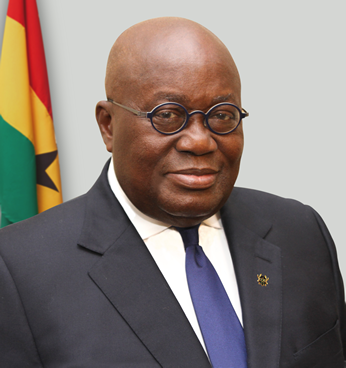Ghana’s new government has announced it will resume the country's renewable energy program, and that further incentives to attract private sector investment in solar and wind will be introduced.
In his recent State of the Nation Address, Ghana’s new president Nana Addo Dankwa Akufo-Addo said his government will support private sector investment in utility scale solar and wind energy projects, as well as accelerate the development of mini-grid solutions in off-grid and island communities.
Akufo-Addo also said that he intends to enforce a procurement law, which will create a new mechanism for open and competitive bidding for power capacity procurement.
Ghana's Renewable Energy Act will also be reviewed, Akufo-Addo added, in order to provide further incentives to attract the private sector to invest.
Moreover, the Ghanaian president has revealed that utility Electricity Company of Ghana (ECG) had signed 43 Power Purchase Agreements (PPA) for unspecified projects at the end of 2016, and that a further 23 were under discussion without adding details.
The government is now reconsidering all of the PPAs signed by the previous government “in order to prioritise, renegotiate, defer or cancel outright, if necessary, in the national interest”, Akufo-Addo stated.
In addition to these new initiatives, in mid-March the country’s Energy Commission launched a rooftop solar program, originally conceived in 2015, which provides an initial investment to cover the cost of PV panels up to a maximum of 500 W. The applicant is required to pay only for the cost of the balance of system components (BOS). This means inverter, batteries, charge controllers, breakers, switches, cables, and installation works.
Under the Rooftop Solar Programm, the Energy Commission aims at installing 200 MW of rooftop PV capacity in the medium term. PV systems installed under the program can sell their power surplus to the local grid through a net-metering scheme, which is expected to come into force in 2018. No power limit has been set for PV projects to be eligible to have access to net-metering.
According to the latest statistics available, Ghana had 23.22 MW of grid connected PV capacity as of the end of the first half of 2016. Most of this capacity comes from a 20 MW PV plant completed by the independent power producer BXC Ghana Ltd., a subsidiary of China-based industrial conglomerate Beijing Fuxing Xiao-Cheng Electronic, in April 2016.
Ghana introduced the Renewable Energy Act in 2011. Later in May 2015, the government launched the Scaling-up Renewable Energy Program (SREP) Investment Plan for Ghana. At the time, the government said that a total of $230 million was to be invested into four project areas: (i) renewable energy mini-grids and stand-alone solar PV systems; (ii) solar PV-based net metering with storage; (iii) utility-scale solar PV/wind power generation; and (iv) a technical assistance project.
Ghana, whose National Energy Policy is targeting 10% coverage of electricity production with renewables by 2020, is in desperate need of increased electricity capacity. Approximately 30% of its population has no access to power. The Ghanaian Strategic National Energy Plan (SNEP) aims at increasing generation capacity from 2,6 GW in 2012 to 5,5 GW by 2026.
The installation of additional generation capacity, however, is not the only issue of the country’s power system. In his recent speech to the nation, Akufo-Addo accused his predecessor John Dramani Mahama of having caused the deep financial crisis of the heavily indebted energy sector, with net debt reaching $2.4 billion as of December 2016.
“The most obvious manifestation of the energy problem has earned us notoriety in the world, with the entry into Wikipedia and other dictionaries of the word Dumsor. It is a phenomenon that has blighted our lives, destroyed appliances and collapsed many companies. The attempts by the previous government to resolve the crisis have led to a gargantuan debt overhang in the sector,” Akufo-Addo said. “Doom-sore” is a popular Ghanaian word which describes chronic, irregular and unpredictable power shortages.
This content is protected by copyright and may not be reused. If you want to cooperate with us and would like to reuse some of our content, please contact: editors@pv-magazine.com.




This is an awesome vision by the government and we will be delighted to assist in any way we can .
We are an Australian company with a branch office in Ghana . Among other things , we are involved in the export of Solar products to Ghana and West Africa .
Please check our website for more information – akanconsult.com.au
great innovation and vision by the government of ghana, we would be only too happy to contribute to this regeneration programme, we are a fledgling company ,london based looking to expand into the west of Africa,